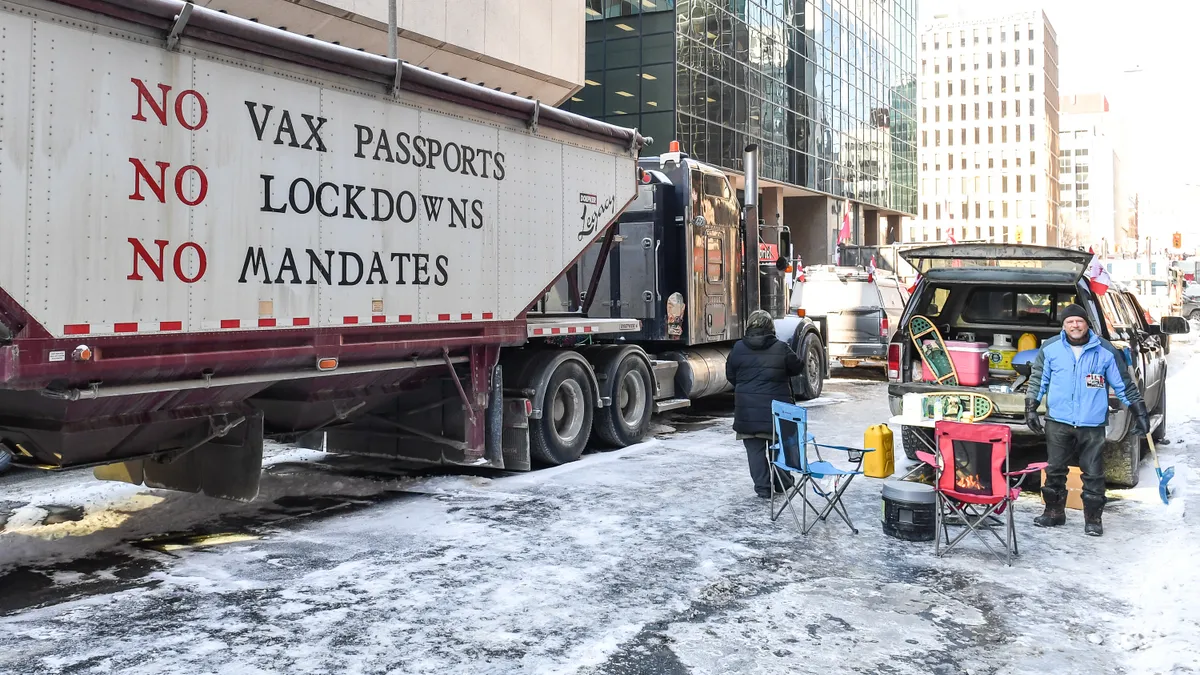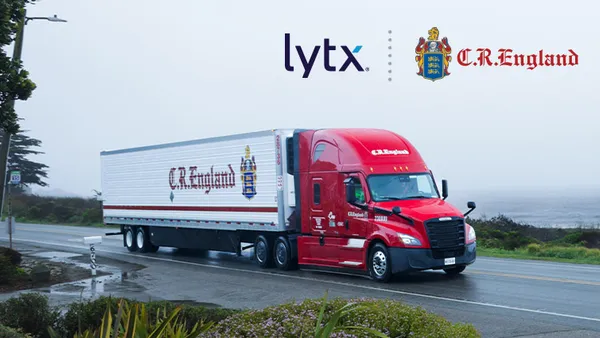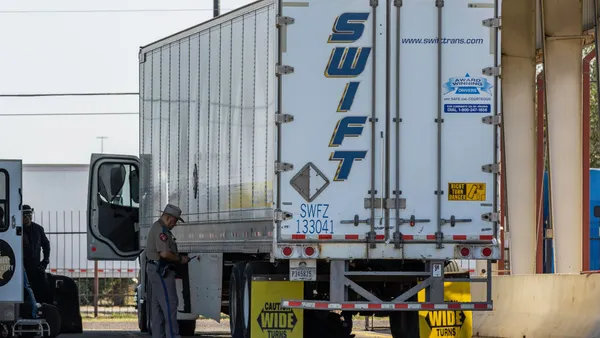Dive Brief:
- The Canadian truckers who have occupied parts of the nation's capital, Ottawa, are beginning to have a larger impact on North American industries, with TL spot prices surging from Detroit to Laredo, Texas, during the last week, according to DAT.
- The North American auto industry is heavily dependent upon trade lanes from Toronto through Detroit to Laredo, an entry point to Mexican auto plants. It usually has dedicated contract lanes to these cities, but the trucks, for reasons related to the Canadian protests, are not showing up in the same number. That has thrown the business, temporarily, to the TL spot market, according to Dean Croke, DAT principal analyst.
- In 2021, the average dry van load from Toronto to Detroit cost $554, or about $2.37 per mile, said Croke. In the last seven days, that has more than doubled to $1,202 per load, or about $5.13 per mile. Croke said those rates likely reflect the cost of routing around the Ambassador Bridge, which connects Detroit to Windsor, Ontario. Canadian truckers blockaded the key bridge on Thursday and Friday.
Dive Insight:
The Canadian trucker protests, known as the Freedom Convoy, began in mid-January as exemptions for unvaccinated cross-border drivers ended in Canada and the United States. A convoy headed to Ottawa with the hopes of ending the mandate.
But as the protest dragged on, it spread to other parts of Canada, leading to border blockades in Alberta and Manitoba and, perhaps most significantly, at the Ambassador Bridge that connects Detroit with Windsor. That action led to market volatility on the spot price market, likely because contract freight was disrupted, said Croke.
Spot prices have soared in the seven days ended Feb. 11, Croke said, and have even involved higher costs for lanes from Toronto and Detroit to Laredo and Phoenix.
The Canadian protests are impacting the North American automobile industry because it is heavily dependent on parts and factories located in Canada, the United States and Mexico, Croke said. Those plants and suppliers feed each other on a constant basis, and any delay could lead to production slowdowns or shutdowns.
And that's what has happened: An Ohio Ford plant has laid off employees for a week because of parts shortages, and Toyota said there would be downtime at plants in Alabama and West Virginia, according to the New York Times.
Croke said the stretch between Toronto to Detroit and then Laredo is known as "Auto Alley." Problems there can cause rate jumps elsewhere. The seven-day average spot rate for Laredo to Montreal is $2.68 per mile, double the average rate for 2021, he said.
The blockades have elicited strong reactions from some leaders and business lobbies. Doug Ford, the leader of Ontario provincial government, declared a state of emergency on Friday. Canadian Prime Minister Justin Trudeau threatened criminal trespassers on Friday with long-term consequences related to licensing and travel.
The American Trucking Associations issued a statement, noting it did its share to end the vaccine mandate for drivers within the United States.
"ATA strongly opposes any protest activities that disrupt public safety and compromise the economic and national security of the United States," said Chris Spear, ATA president and CEO, adding that the group challenged the vaccine mandate in the U.S. because it held "serious concerns" about the rule.
But the Owner-Operator Independent Drivers Association, which has 1,000 Canadian members, wrote to Trudeau, urging him to exempt cross-border drivers.












